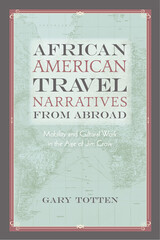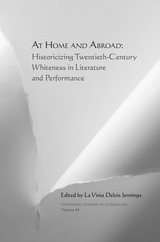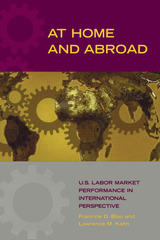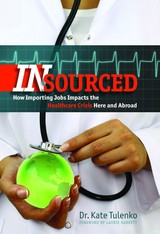
In this book, Gary Totten examines the global travel narratives of a diverse set of African American writers, including Ida B. Wells, Booker T. Washington, Matthew Henson, Jessie Redmon Fauset, and Zora Neale Hurston. While these writers deal with issues of identity in relation to a reimagined sense of self—in a way that we might expect to find in travel narratives—they also push against the constraints and conventions of the genre, reconsidering discourses of tourism, ethnography, and exploration. This book not only offers new insights about African American writers and mobility, it also charts the ideological distinctions and divergent agendas within this group of writers. Totten demonstrates how these travelers and their writings challenged dominant ideologies about African American experience, expression, and identity in a period of escalating racial violence. By setting these texts in their historical context and within the genre of travel writing, Totten presents a nuanced understanding of both popular and recovered work of the period.

Drawing upon racialized, national practices implemented prior to and during the twentieth century, each of the essays enlists literature or performance to reflect the sociopolitical imperatives that secured whiteness in the respective locations they study. They range from examinations of whiteness in the literature of Appalachia and contemporary Argentinean poetry to an analysis of performances memorializing the colonial experience in Italy and an exploration into the white rap music of Eminem and contemporary multiracial passing.
As the contributors show, literary and performance representations have the power to chronicle histories that reflect the behaviors and lived realities of our selves. Whether whiteness, in addition to its physical manifestation, presents itself as identity, symbol, racism, culture, social formation, political imposition, legal imposition, or pathology, it has been outed into the visible, even in national spaces where the term “whiteness” has yet to be translated and entered into the official lexicon.
The ten essays collected here provide powerful insights into where and how the race for biological and genealogical whiteness persists in various geopolitical realms and the ways in which Nordic whites, as well as ethnic whites and nonwhites, resecure its ascendance.
La Vinia Delois Jennings is professor of English at the University of Tennessee, Knoxville. Her recent critical study Toni Morrison and the Idea of Africa won the 2008 Toni Morrison Society Prize for Best Single-Authored Book on the Nobel laureate and Pulitzer-Prize winning author.


Anne-Emanuelle Birn and Theodore M. Brown bring together a group of professionals and activists whose lives have been dedicated to health internationalism. By presenting a combination of historical accounts and first-hand reflections, this collection of essays aims to draw attention to the longstanding international activities of the American health left and the lessons they brought home. The involvement of these progressive U.S. health professionals is presented against the background of foreign and domestic policy, social movements, and global politics.




The memoirs of Marguérite Schenkhuizen provide an overview of practically the whole of the twentieth century as experienced by persons of mixed Dutch and Indonesian ancestry who lived in the former Dutch East Indies. The memoirs provide vignettes of Indonesian life, both rural and urban, as seen through the eyes of the author first as a girl, then as a wife separated from her husband during the Japanese occupation, finally as an immigrant to the United States after World War II.
This self-portrait gives glimpses of the life of Indos from inside their society, glimpses that are valuable for their descendents as well as for outsiders. Written with humor and a positive town, Schenkhuizen’s story sets aside the myth that Indos were denied access to the upper layers of Dutch colonial society or were otherwise disadvantaged. Instead, her life story provides an authentic view of a vital Indo culture and experience that has been unavailable to the general reader of English.

The essays investigate and meditate on a broad array of related topics, including drone strikes, tear gas, and military intervention; the sugar trade, the Dutch blackface celebration of Zwarte Piet, and constructions of whiteness in Europe and the U.S.; and visual arts of Russian avant-garde painters, an Iraqi choreographer living in Belgium, and German choreographer Pina Bausch.
This is a lyrical, timely book deeply salient to the political moment we continue to find ourselves in: a moment of incredible anti-refugee and anti-immigrant sentiment, a moment of xenophobic and misogynistic violence.

A Classic in Counterintelligence—Now Back in Print
Originally published in 1987, Thwarting Enemies at Home and Abroad is a unique primer that teaches the principles, strategy, and tradecraft of counterintelligence (CI). CI is often misunderstood and narrowly equated with security and catching spies, which are only part of the picture. As William R. Johnson explains, CI is the art of actively protecting secrets but also aggressively thwarting, penetrating, and deceiving hostile intelligence organizations to neutralize or even manipulate their operations.
Johnson, a career CIA intelligence officer, lucidly presents the nuts and bolts of the business of counterintelligence and the characteristics that make a good CI officer. Although written during the late Cold War, this book continues to be useful for intelligence professionals, scholars, and students because the basic principles of CI are largely timeless. General readers will enjoy the lively narrative and detailed descriptions of tradecraft that reveal the real world of intelligence and espionage. A new foreword by former CIA officer and noted author William Hood provides a contemporary perspective on this valuable book and its author.

A sobering account of how the United States trapped itself in endless wars—abroad and at home—and what it might do to break free.
Over the past half-century, Americans have watched their country extend its military power to what seemed the very ends of the earth. America’s might is felt on nearly every continent—and even on its own streets. Decades ago, the Wars on Drugs and Terror broke down the walls separating law enforcement from military operations. A World of Enemies tells the story of how an America plagued by fears of waning power and influence embraced foreign and domestic forever wars.
Osamah Khalil argues that the militarization of US domestic and foreign affairs was the product of America’s failure in Vietnam. Unsettled by their inability to prevail in Southeast Asia, US leaders increasingly came to see a host of problems as immune to political solutions. Rather, crime, drugs, and terrorism were enemies spawned in “badlands”—whether the Middle East or stateside inner cities. Characterized as sites of endemic violence, badlands lay beyond the pale of civilization, their ostensibly racially and culturally alien inhabitants best handled by force.
Yet militarized policy has brought few victories. Its failures—in Iraq, Afghanistan, US cities, and increasingly rural and borderland America—have only served to reinforce fears of weakness. It is time, Khalil argues, for a new approach. Instead of managing never-ending conflicts, we need to reinvest in the tools of traditional politics and diplomacy.
READERS
Browse our collection.
PUBLISHERS
See BiblioVault's publisher services.
STUDENT SERVICES
Files for college accessibility offices.
UChicago Accessibility Resources
home | accessibility | search | about | contact us
BiblioVault ® 2001 - 2024
The University of Chicago Press









